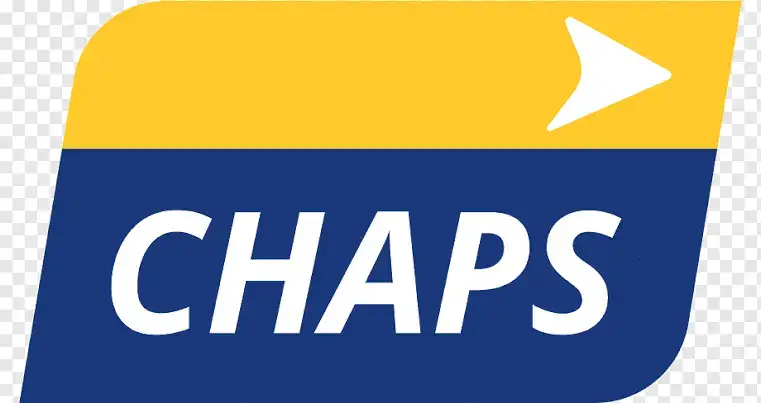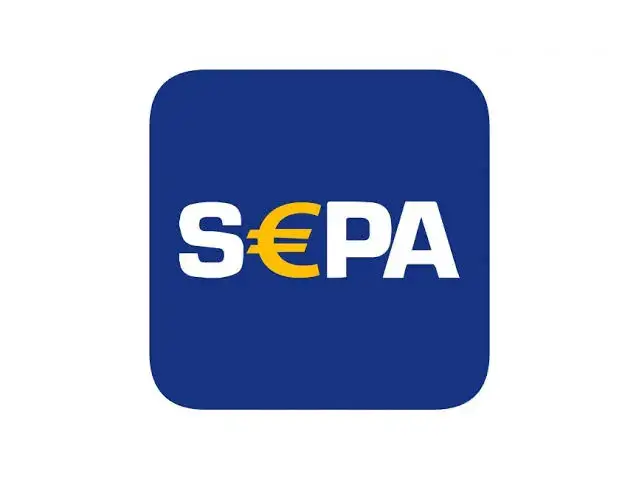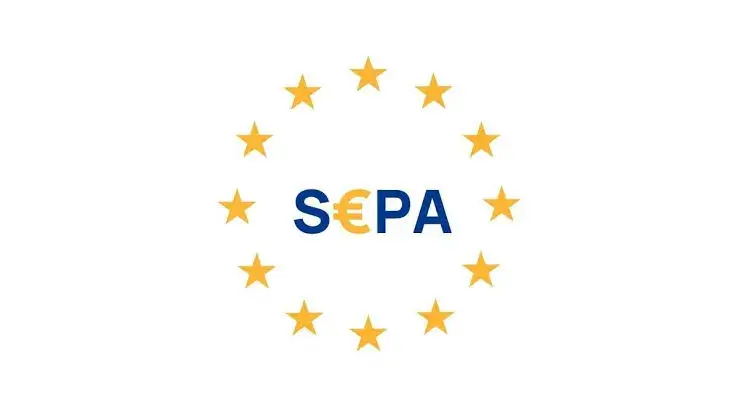Last Updated on April 24, 2023

Bank payment schemes are essential for transferring money between individuals, businesses, and financial institutions. They are designed to provide secure, reliable, and efficient payment services for customers, enabling them to make transactions quickly and easily.
With the rise of digital banking and online transactions, understanding the different payment schemes available is crucial for anyone who wants to manage their finances effectively. In this article, we will explore the various bank payment schemes, including SWIFT, FPS, ACH, CHAPS, SEPA, and SEPA INSTANT.
We will examine the benefits and drawbacks of each scheme and provide examples of when they might be most appropriate. By the end of this article, you will have a better understanding of the different bank payment schemes available and will be better equipped to choose the right one for your needs.
SWIFT

SWIFT (Society for Worldwide Interbank Financial Telecommunication) is a global financial messaging network used by banks and financial institutions to securely and efficiently transfer money across borders. Established in 1973, SWIFT provides a platform for banks to communicate with each other, enabling them to send and receive payment instructions, confirmations, and other financial messages.
SWIFT messages are used for a variety of financial transactions, including wire transfers, foreign currency exchanges, and securities trading. The network is renowned for its speed, reliability, and security, with more than 11,000 financial institutions in over 200 countries connected to the SWIFT network.
SWIFT provides a range of messaging services, including FIN (Financial Industry Messaging Service) and SWIFTNet, which support both message-based and file-based transactions. SWIFT also offers a range of value-added services, such as regulatory compliance and anti-money laundering (AML) services, to help financial institutions meet their regulatory obligations.
Despite its many advantages, SWIFT is not without its drawbacks. The network can be expensive to use, with fees charged for each message sent or received. Additionally, SWIFT transactions can take several days to settle, making them less suitable for time-sensitive transactions.
Overall, SWIFT remains an important player in the global financial system, providing a secure and reliable means for financial institutions to transfer money across borders.
Faster Payments Service (FPS)

The Faster Payments Service (FPS) is a UK-based payment scheme designed to provide a faster, more convenient, and more secure means for individuals and businesses to transfer money between UK bank accounts. Launched in 2008, FPS allows customers to make near-instant payments, with funds typically transferred within seconds of the transaction being initiated.
FPS is available 24/7, 365 days a year, and can be accessed via a variety of channels, including online banking, mobile banking apps, and telephone banking. The scheme is open to all UK banks and building societies, with over 50 participating institutions currently offering FPS services.
One of the key advantages of FPS is its speed. Payments made through FPS are typically processed within seconds, enabling customers to transfer money quickly and efficiently. Additionally, FPS payments are highly secure, with robust fraud prevention measures in place to protect against fraudulent activity.
Another benefit of FPS is its convenience. Customers can initiate payments at any time, from any location, using a variety of devices, including smartphones and tablets. This makes it easy for customers to manage their finances on the go, without the need to visit a bank branch or use a computer.
Overall, FPS is an important payment scheme that has revolutionized the way people in the UK transfer money. Its speed, convenience, and security have made it a popular choice among consumers and businesses alike, and it is likely to remain a key player in the UK payments landscape for years to come.
CHAPS

CHAPS (Clearing House Automated Payment System) is a same-day UK payment scheme that enables the transfer of large sums of money between banks and other financial institutions. CHAPS transfers are typically used for high-value transactions, such as property purchases, and are settled on the same day that they are initiated.
CHAPS payments are initiated by customers through their banks or financial institutions and typically involve a fee, which can vary depending on the bank and the size of the transfer. CHAPS payments can be made using a variety of channels, including online banking, mobile banking apps, and telephone banking.
One of the key advantages of CHAPS is its speed. CHAPS transfers are settled on the same day that they are initiated, making them a popular choice for time-sensitive transactions. Additionally, CHAPS payments are highly secure, with robust fraud prevention measures in place to protect against fraudulent activity.
Another benefit of CHAPS is its reliability. CHAPS transfers are guaranteed by the Bank of England, providing customers with a high degree of assurance that their money will be transferred securely and on time.
Overall, CHAPS is an important payment scheme that has become a vital part of the UK payments landscape. Its speed, security, and reliability have made it a popular choice among consumers and businesses, particularly for high-value transactions, and it is likely to remain a key player in the UK financial system for many years to come.
SEPA

The Single Euro Payments Area (SEPA) is a payment integration initiative launched by the European Union to create a unified payments market across Europe. SEPA enables individuals and businesses to make euro-denominated payments to any bank within the European Economic Area (EEA) using a single set of payment instruments and standards.
SEPA payments are typically initiated through a customer’s bank or financial institution and can be made using a variety of channels, including online banking, mobile banking apps, and telephone banking. SEPA payments can take up to three business days to settle, depending on the type of transaction.
One of the key advantages of SEPA is its convenience. SEPA payments can be made using a single set of payment instruments and standards, making it easier for customers to make cross-border payments within the EEA. Additionally, SEPA payments are typically cheaper than traditional cross-border payments, with fees ranging from a few cents to a few euros per transaction.
Another benefit of SEPA is its standardization. SEPA payment instruments and standards have been standardized across the EEA, providing customers with a consistent and reliable payment experience, regardless of which country they are in.
Overall, SEPA is an important payment integration initiative that has made it easier and more convenient for individuals and businesses to make cross-border payments within the EEA. Its convenience, cost-effectiveness, and standardization have made it a popular choice among consumers and businesses, and it is likely to remain a key player in the European payments landscape for many years to come.
SEPA INSTANT

SEPA Instant is an extension of the Single Euro Payments Area (SEPA) initiative that enables instant euro-denominated payments within the European Economic Area (EEA). SEPA Instant payments are settled in real-time, providing customers with immediate access to funds and allowing for faster and more efficient transactions.
SEPA instant payments can be initiated through a customer’s bank or financial institution using a variety of channels, including online banking, mobile banking apps, and telephone banking. SEPA instant payments are typically used for time-sensitive transactions, such as emergency payments or urgent payroll processing.
One of the key advantages of SEPA Instant is its speed. SEPA Instant Payments are settled in real-time, allowing customers to receive funds almost immediately after they are sent. This makes it easier and more convenient for individuals and businesses to manage cash flow and make time-sensitive payments.
Another benefit of SEPA Instant is its accessibility. SEPA Instant payments can be made by any bank or financial institution within the EEA that supports the SEPA Instant scheme, making it easier for customers to make instant payments regardless of which bank they use.
Overall, SEPA Instant is an important extension of the SEPA initiative that has made it easier and more convenient for individuals and businesses to make instant euro-denominated payments within the EEA. Its speed, accessibility, and efficiency have made it a popular choice among customers, and it is likely to continue to grow in popularity as more banks and financial institutions adopt the SEPA Instant scheme.
Comparison of the Different Bank Payment Schemes
Each of the bank payment schemes—SWIFT, FPS, ACH, CHAPS, SEPA, and SEPA Instant—offers unique advantages and disadvantages, making them better suited for certain types of transactions than others.
SWIFT is an international payment system used for cross-border payments. It is highly secure and reliable, but it can be costly and slow. SWIFT payments can take several days to settle, making them less suitable for time-sensitive transactions.
FPS, on the other hand, is a UK-based payment system that enables fast and secure payments within the UK. FPS payments are settled in real-time, making them ideal for time-sensitive transactions. However, FPS payments are subject to limits, which may not be suitable for high-value transactions.
ACH is a US-based payment system that enables electronic transfers of funds between banks. ACH payments are typically cheaper than wire transfers but can take several days to settle, making them less suitable for time-sensitive transactions.
CHAPS is a same-day UK payment system that enables the transfer of large sums of money between banks and financial institutions. CHAPS payments are settled on the same day that they are initiated, making them ideal for time-sensitive, high-value transactions. However, CHAPS payments can be costly, making them less suitable for smaller transactions.
SEPA and SEPA Instant are European-based payment systems that enable euro-denominated payments within the EEA. SEPA payments are typically cheaper than traditional cross-border payments, making them ideal for cross-border transactions. SEPA Instant Payments, on the other hand, offer real-time settlement, making them ideal for time-sensitive transactions.
In summary, each bank payment scheme has its own strengths and weaknesses, and the choice of which scheme to use will depend on the nature of the transaction and the preferences of the customer. Understanding the differences between the various bank payment schemes can help customers make informed decisions when it comes to managing their finances and making payments.
Conclusion
Understanding the different bank payment schemes is important for individuals and businesses alike, as it enables them to make informed decisions when it comes to managing their finances and making payments. Choosing the right payment scheme can help individuals and businesses save time, money, and effort while ensuring that their transactions are secure and reliable.
When it comes to choosing the right payment scheme, there are a few key factors to consider. Firstly, it is important to consider the nature of the transaction. Is it time-sensitive? Is it a high-value transaction? Is it a cross-border transaction? The answers to these questions will help determine which payment scheme is best suited for the transaction.
Another important factor to consider is cost. Different payment schemes have different fees and charges, and it is important to understand these costs before making a decision. For example, some payment schemes may be cheaper for small transactions, while others may be more cost-effective for larger transactions.
Security and reliability are also important considerations when choosing a payment scheme. It is important to choose a payment scheme that is secure and reliable to ensure that transactions are completed without any issues or delays.
Finally, it is important to consider accessibility. Some payment schemes may only be available through certain banks or financial institutions, and it is important to choose a payment scheme that is accessible and convenient.
In summary, understanding the different bank payment schemes is important for making informed decisions when it comes to managing finances and making payments. By considering factors such as the nature of the transaction, cost, security, reliability, and accessibility, individuals and businesses can choose the payment scheme that is best suited for their needs.
Before you go…
Hey, thank you for reading this blog to the end. I hope it was helpful. Let me tell you a little bit about Nicholas Idoko Technologies. We help businesses and companies build an online presence by developing web, mobile, desktop, and blockchain applications.
We also help aspiring software developers and programmers learn the skills they need to have a successful career. Take your first step to become a programming boss by joining our Learn To Code academy today!
Be sure to contact us if you need more information or have any questions! We are readily available.











